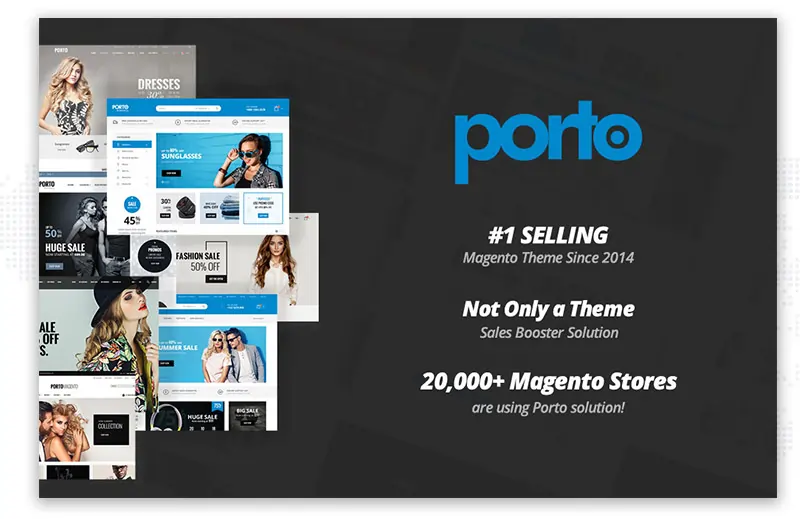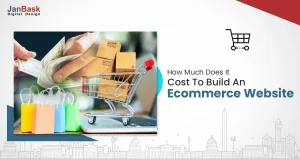
Content Index
- Introduction
- Shopify Vs Magento
- Scalability For Enhanced Performance
- Can’t Ignore Cost To Decide Over The Right Course Of Action
- How Easy Is It To Use? Magento vs Shopify
- Type Of Products You Can Sell In Case Of Shopify vs Magento
- Hope It Does Not Long To Set-Up!!
- Search Engine Optimisation (SEO)
- We Need The best Marketing Features
- No one Likes A Dull Web Design
- Customer Support At Your Rescue!!
- At The End What Matters Is Sales
- Magento vs Shopify - Pros and Cons
- Which Platform Should You Go For?
- Conclusion
Introduction

Struggling to decide between Magento vs Shopify? We are here to help!!
On one side stands Shopify with all top brands associated with them from:
- Fashion Nova which is the fourth most Googled fashion brand of 2017, relies on Shopify Plus and their Partner, Simplistic, for flawless performance.
- Death Wish Coffee made +$2K in sales per minute when their Super Bowl commercial aired and Shopify merchants processed $1.1M per minute in sales at Cyber Monday’s peak.
- Heinz, the 150-year-old food giant's first direct-to-consumer offering, powered by Shopify Plus.
- Bulletproof is environmentally conscious and sells its ethically sourced products online to build a sustainable future in the fitness and health industry—all through Shopify Plus.
- Kylie Cosmetics handled 200K visitors simultaneously during the biggest product drop in eCommerce history and helped Kylie become a billion-dollar brand in just three years.
The homepage currently reports 5300+ businesses on Shopify Plus. First spotted in April 2019. In June 2020, Shopify announced that in 2019, more than 2 million full-time jobs are supported by businesses on Shopify all over the world. In October 2019, Shopify reported that there are 1.4m full-time jobs supported by businesses on Shopify around the world. In May 2020, Shopify announced that 26,400 partners referred a merchant to Shopify over the past 12 months.
On the other side stands Magento, with impressive numbers of
- Over 270,000 merchants choose Magento for their business.
- Magento currently powers 1.2% of sites on the Internet.
- Magento handles more than $100 billion in gross merchandise every year. There are over 200,000 Magento developers around the world. E-commerce businesses attribute 10–80% of their revenue uplift to Magento.
- The number of Magento sites doubled between 2017 and 2018.
- Magento’s global e-commerce sales in 2020 amount to $224 billion.
Magento enjoys unmatched brand loyalty with market leaders associated with them.
In 2019, Helly Hansen held a total revenue of $650.8 million. They continue to develop online stores and increase profits. Sigma Beauty is a popular British makeup brand. Ford Accessories Online store that has been on Magento for a long. Monin is another successful member on Magento’s site list. The company is a major player on the international stage of the drinks industry. In 2019, they’ve sold about 100 million bottles.
Now with such striking numbers, it is a challenge to decide between Magento and Shopify and which eCommerce platform will suit your business needs, maximize revenues, and the client base for you. Let’s focus on certain key areas that impact business growth and should be taken into consideration when deciding on the right platform.
Shopify Vs Magento
The closed-source vs. open-source software is a key difference between Magento vs Shopify. Magento boasts a fully open-source platform and Shopify is closed-source. This directly impacts the prices, scalability, and adaptability of both platforms.
Scalability For Enhanced Performance
Scalability is the ability to adapt over time to changes and should not be ignored. How will you handle any unexpected changes, demand fluctuations especially in the case of eCommerce if the platform is not scalable? So let’s see what these two platforms have to offer in terms of scalability.
SHOPIFY
Scalability is not an issue when it comes to Shopify. Shopify Plus’ cloud-based infrastructure — which powers over 600,000 merchants at 80,000 requests per second you cannot doubt the scalability. With a hosted solution like Shopify Plus, there are never any upgrades or patches to worry about. No bandwidth issues or transaction caps. As Shopify Plus Partners, Simplistic specializes in creating online stores that can withstand the enormous traffic and sales surges. As Greg Merrell, the co-founder of Simplistic explains:
Shopify Plus is the only platform we trust to handle the massive spikes in traffic and transactions that come from Good Morning America, The View, and other nationally televised flash sales.
MAGENTO
With Magento, it’s not the same as you will have to host your site. You are required to ensure that your architecture helps you adapt to your growth. In case of peaked traffic, you may have to move your website over to another server or switch hosts. With Magento 2, this type of framework can be built using a modular architecture. Magento 2 is the most powerful platform when it comes to discovering future trends. This kind of data is invaluable when it comes to the ability of different platforms to be scaled both up or down. The platform works with a large number of third-party tools and services like New Relic, DataDog, MixPanel, Splunk, and Google Analytics.
Can’t Ignore Cost To Decide Over The Right Course Of Action
Shopify
Basic Shopify - $29 per month
For $29 a month, the Basic Shopify plan gives you access to two user accounts, with an unlimited number of products and file storage. You have access to all the essentials required to start selling online straight away as a new business.
Shopify - $79 per month
For $79 per month, the Shopify plan gives you access to up to five user accounts. You have access to the features of basic plans plus gift cards and access to professional reporting to help you make more informed decisions for business growth.
Advanced Shopify - $299 per month
If you have an established business, then the most appropriate plan for you to be on is Advanced Shopify. You have everything from Unlimited products, Unlimited bandwidth and online storage, Gift cards, connection to different online sales channels, Abandoned cart recovery, financial reports, and much more.
How much does Magento cost?
To decide between shopify vs magento. The Magento Community Edition is free to download and use for all but that does not mean you do not shell anything from your pocket. In fact, the budget you plan to spend on a Magento store will vary on the following key factors:
- Customization required for your store.
- Hosting and support services
- If you source an in-house developer, through an agency or choose a freelancer
- The theme you use and the extensions you add
Depending on the size and scope of your online store, hosting on Magento will set the cost which may lie anywhere between £15 and £100 depending on the size of your site.
How Easy Is It To Use? Magento vs Shopify
Shopify
Shopify adding products and managing the same is quite simple. The dashboard is user-friendly and saves a lot of your time. Shopify is well designed for merchants with very little technical know-how. Once you sign up on Shopify, adjust settings, select shipping options, connect with payment options, add products where you input basic information like price, inventory totals, and images. You can also write product descriptions on this page and use tags and categories to organize items. Managing inventory is also seamless with Shopify.
Magento
Setting up Magento requires technical know-how. You’ll need to be able to afford the time for your developer(s) to learn the ins and outs of the platform and provide full training to other staff members. Magento is recommended for those with technical expertise.
Before you install Magento, there are a set of minimum requirements:
- Your system needs to meet the requirements discussed in Magento System Requirements.
- You must complete all prerequisite tasks discussed in Prerequisites.
- After you log in to the Magento server, you’ll need to switch to the Magento file system owner.
-
- Go to Magento’s Site
- Manage Your Admins Page
- Choose Your Hosting
- Pick A Store Theme
- Customize and Design
- Add Store Functionalities Using Extensions
- Set Up Your Database
- Add Your Products
- Add SEO Keywords
- Setup Payments and Shipping
Type Of Products You Can Sell In Case Of Shopify vs Magento
Shopify
With Shopify, you can sell both physical goods and services. To sell services, you can uncheck the shipping checkbox to show that you are selling a digital product or service rather than a physical one.
Magento
Magento has it all for both B2C and B2B audiences. You can sell any products and any services through it. Magento can serve almost every type of business need.
Hope It Does Not Long To Set-Up!!
Shopify
A very easy and user-intuitive eCommerce platform that enables you to sell online quickly. You can set up an online store in a day or over a weekend with Shopify.
Magento
Magento is not the one you can set up in a day or over a weekend. It’s difficult to say how long a Magento project is likely to take, as it completely depends on the size and scope of your online store, the level of customization you’re seeking, and the number of extensions you want.
Search Engine Optimisation (SEO)
Shopify
Shopify comes with main SEO options like customizable title tags, 301 redirects, some meta information, and automatic sitemap generation. Shopify online stores have SEO built-in and feature to help you optimize your content. You can edit the title tags, meta descriptions, and URLs for blog posts, webpages, products, and collections. You can edit the alt text for images.
Magento
Magento is an awesome eCommerce platform for search engine optimization. It gives you complete control because you have full control over everything within the system, which means you can set things as you like. You can fully customize your online shop’s SEO functionality, change the default meta tags and restrict search engines from indexing pages you don’t want to rank for.
We Need The best Marketing Features
Shopify
Shopify has plenty of marketing features from creating discounts, coupons for a specific set of customers. You also have the option of a blog. You have access to some reporting and analytics to inform work on your marketing campaigns. You have it all for the audience, exclusive campaigns, insights, and much more. You have features like email marketing tools, Google smart shopping wherein you set a daily budget and let Google’s technology run strategic campaigns for you, Facebook ads. The marketing dashboard helps you track your campaign performance across all channels, from start to finish.
Magento
With Magento, you can offer discounts or free shipping on your terms. You can create customized discounts for customers who want to buy a sizable quantity of your products. Create email newsletters to send to your customers. Great Analytics and Reporting • Integrated with Google Analytics • Admin dashboard for report overview • Sales report • Tax report • Abandoned shopping cart report. Private Sales and other catalog events are a great way to leverage your existing customer base to generate buzz and new leads with exclusive access for members only, or by invitation.
No one Likes A Dull Web Design
Shopify

The Shopify Theme Store has a collection of over 70 premium and free eCommerce templates from clothing, fashion, art, photography, you name it they have it. Every template comes with its theme settings which allow you customization of any type. Upload a logo, change fonts, colors, and more. You can make your eCommerce website look exactly like you want it to.
Magento

The high level of customization and front-end website design is one key aspect that enterprises love about Magento. Mobile optimized designs and layouts. Use server-side technology to deliver or render images appropriately sized for the device.
Customer Support At Your Rescue!!
Shopify
You get 24/7 customer support with Shopify. Shopify offers intensive support to new businesses to help them scale up. It’s fast, responsive, and reliable.
Magento
In comparison, Magento provides very little in the way of customer support. Much of this has to do with the eCommerce platform already being open source which means that it is free to download and use.
At The End What Matters Is Sales
Shopify
Below are some of the best features on Shopify that enable you to sell products and make money:
- Abandoned cart recovery – Shopify understands your goal and so gives the platform to make money. It lets you recover potentially lost sales through automatic emails which you can send to your customers and help them make purchase decisions.
- Make revenue from anywhere and everywhere with Shopify. Multi-channel selling – sell on Amazon, Facebook, Pinterest, and Instagram as a built-in feature.
- Sell anything be it digital or physical products and services.
We also love these sales tools from Magento:
- Multi-channel selling options let you integrate with Facebook, Instagram, and eBay.
- Set percentage and fixed price discounts.
- Checkout customization feature helps you craft processes as per your target audience.
- Abandoned cart recovery.
Magento vs Shopify - Pros and Cons
It’s true that both Shopify and Magento are market leaders, but there are certain pros and cons also to it. Check it out as this will help you decide your course of action.
Shopify Pros & Cons
Magento Pros & Cons

Which Platform Should You Go For?
Shopify
- Shopify Plus is ideal for smaller or mid-sized retailers that need an easy and holistic platform to serve their business needs.
- Shopify is a highly adopted platform among B2C and direct-to-consumer (DTC) brands that are disrupting the retail landscape both online and in-store.
- Shopify allows startups, beginners to scale up easily and make revenues with all tools readily available.
- They provide leading eCommerce functionality like Search engine optimization, great themes, tools for insights and reports, multi-channel integrations that make it a much-in-demand platform, especially for startups.
Magento
- Magento is best for companies that have the technical knowledge or partnerships needed to deal with complex business requirements.
- B2B buyers have more complex needs which require more Enterprise-level functionality which Magento offers like managing targeted product catalogs, account terms, and buyer approval processes.
Conclusion
While you are reading this article, I know you already have your business plan in mind and it’s just the selection of the right eCommerce platform that will turn your vision into reality. Magento vs Shopify. But is not easy, decide your platform basis some of the following factors:
- Cost of development
- The platform matches your niche
- What product you are going to sell
- Do you have the resources to manage the complexities of the platform?
- What extent of marketing activity is required
- SEO friendliness
- Multi-channel integration
What is also required is you carry out comprehensive testing to judge the platforms correctly, and get answers to what is the difference between Magento and Shopify. Rather than going by market words, predictions, the brand name you should consider using the criteria I have highlighted in this article, it will help you narrow down to the right platform that suits your business needs. Share your vision with us and we will send you the best framework that will help initiate the journey.





Leave a Reply